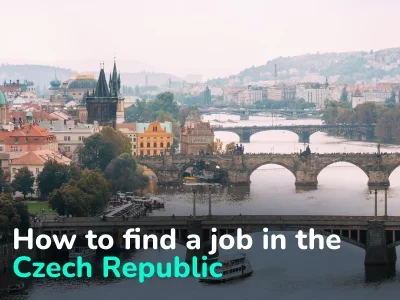
The Czech Republic will attract foreigners more actively. The country needs specialists
The Czech Republic will be more active in attracting foreign specialists. The Ministry of Interior is already preparing amendments to the law on the residence of foreigners in the Czech Republic. They must come into force in the middle of 2025.
The difficulty with the employment of foreigners in the Czech Republic is that the whole process of attracting them is very long, and many, in the meantime, postpone their move. Official figures state that it takes 46 to 63 days to process work permits and select specialists, but in practice, the process takes much longer.
The Czech Republic has a great need to hire workers quickly, as the country does not have enough of them. The new legislation aims to simplify, speed up, and systematize the procedure for obtaining a residence permit; it is planned to make it more transparent, less bureaucratic, and more cost-effective.
The innovation also provides for the digitalization of the process of issuing a residence permit in order to avoid unnecessary bureaucracy. It will also introduce the institution of the guarantor, responsible for foreigners.
“According to the new law, only lawyers who assist foreigners for free and are registered in the list of the Ministry of Interior (so-called guarantors) will be able to represent the interests of foreigners,” explained the director of the Department of Asylum and Migration Policy of the Ministry of Interior, Pavla Novotna.
A guarantor can be, for example, a school, an employer, an educational institution, a research organization, a sports club, or a cultural institution.
What the experts think
Czech companies, faced with a shortage of local workers, are actively seeking to attract foreign workers, so they welcome any efforts to simplify the residency program. However, according to their statements, separate amendments and digitization within a single agency will not solve the problem completely.
The problem is that several agencies (Foreign Affairs, Labor and Social Affairs, Interior, and Industry) are involved in alien affairs simultaneously, and partial changes have little effect on the entire immigration system.
“Any partial improvement is not bad, but it would be most effective if all departmental ministers sat down at the same table and agreed on a single, comprehensive approach by which they would act. It is commendable that everyone is showing a desire to improve the situation, but the results so far have been disappointing. One coordinator is needed,” says Jaroslava Rezlerova, general director of the recruitment company ManpowerGroup Czech Republic.
Author
I am responsible for editorial work. I write expert interviews and guides.























